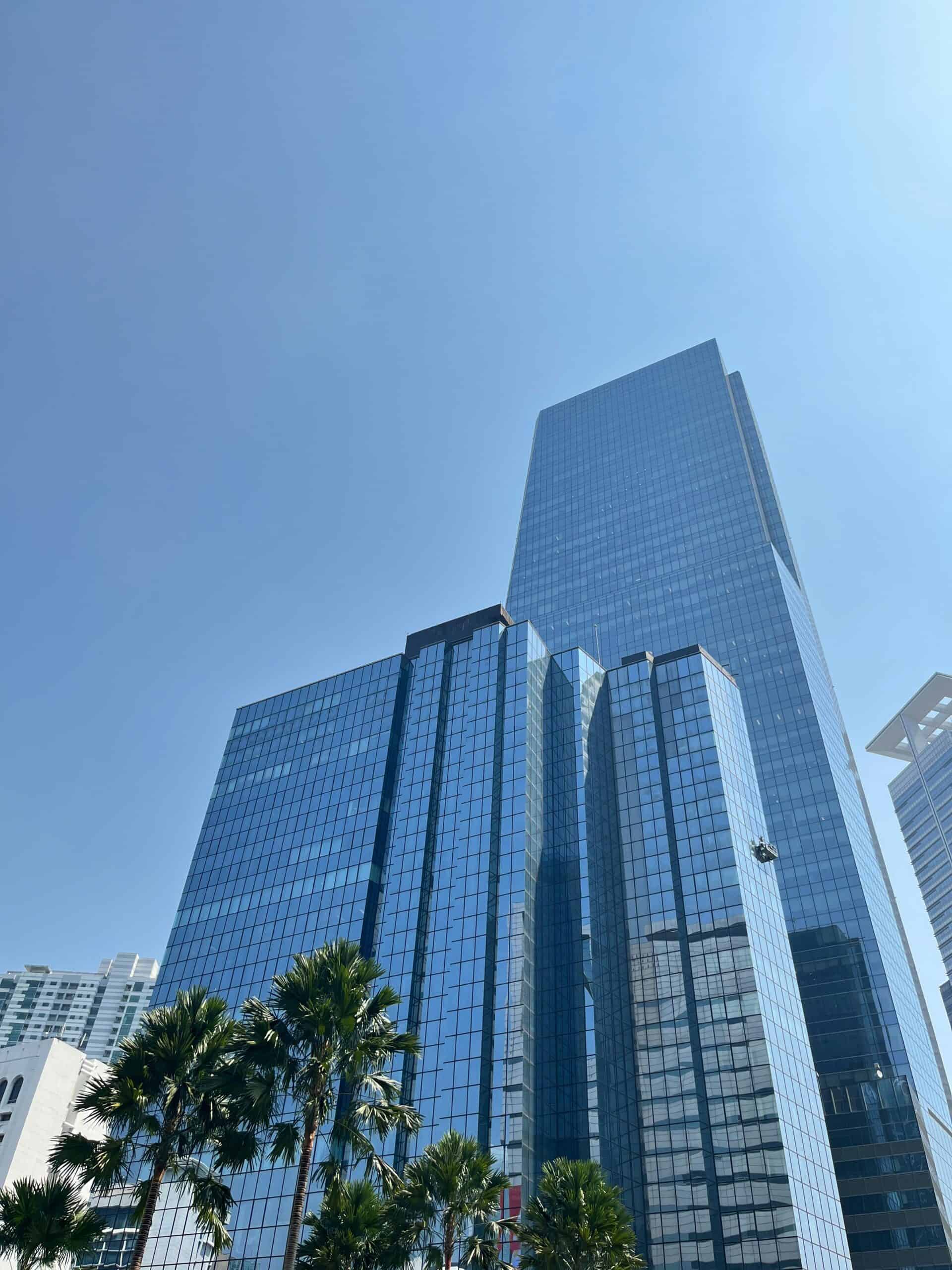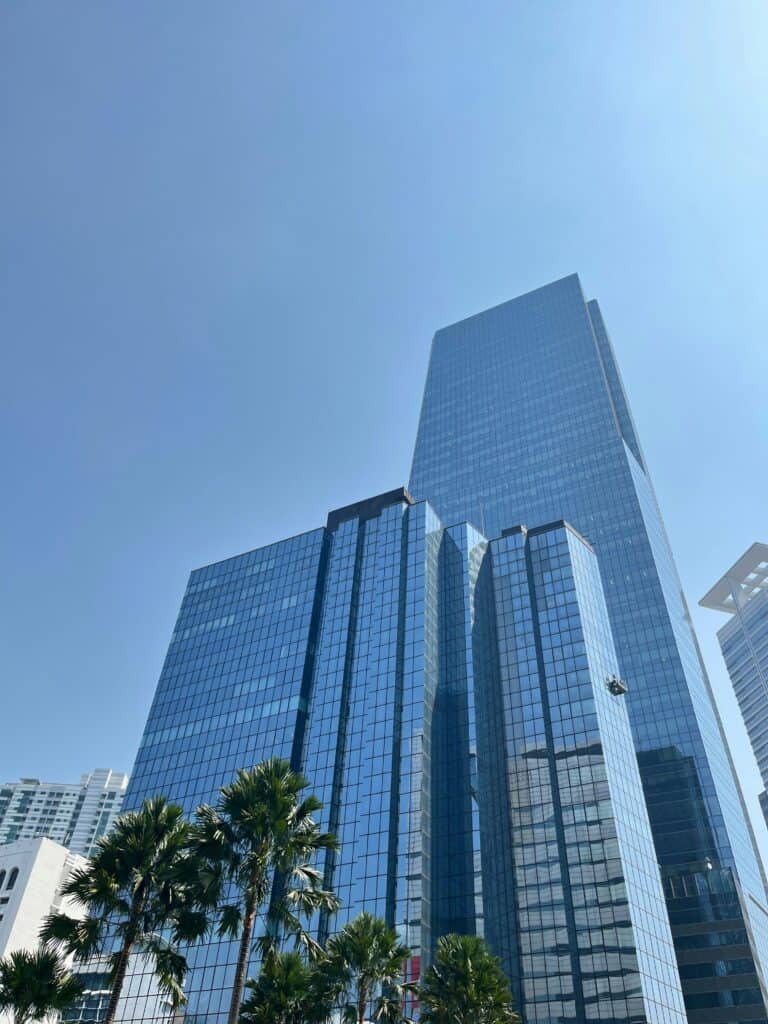Avoiding Costly Mistakes That Can Derail Your Lease
Leasing a commercial space is an exciting milestone for any business, whether you are opening your first storefront, expanding your office footprint, or relocating to a higher-traffic area. But for many tenants, what should be a smooth process can quickly become expensive and stressful when key details are overlooked.
At KEYZ Commercial, we have represented hundreds of tenants across Southern California — from Los Angeles to Orange County to the Inland Empire — and we have seen firsthand how avoidable mistakes lead to long-term costs. The reality is that most leasing issues stem from a lack of preparation, market knowledge, or proper representation.
In this guide, we break down the top mistakes tenants make when leasing commercial property and share the practical steps to avoid them. Whether you are signing your first lease or renegotiating your fifth, understanding these pitfalls can help you make informed decisions and protect your business investment.

Mistake #1: Not Understanding Lease Types
One of the most common errors tenants make is signing a lease without fully understanding the type of agreement they are entering into. There are several common commercial lease structures, including Gross Leases, Modified Gross Leases, and Triple Net (NNN) Leases.
In a Gross Lease, the landlord pays for most property expenses such as taxes, insurance, and maintenance, while the tenant pays a fixed monthly rent. A Modified Gross Lease splits certain operating costs between the landlord and tenant. The Triple Net (NNN) Lease is the most detailed, requiring the tenant to pay rent plus property taxes, insurance, and maintenance.
Each structure has advantages and trade-offs, but misunderstanding who pays for what can cause serious budget issues later. Many tenants assume their rent is all-inclusive, only to discover additional expenses for common area maintenance or property tax adjustments after the first year.
Understanding your lease type is essential to accurately budgeting your total occupancy costs and avoiding unexpected charges.
Mistake #2: Skipping Tenant Improvement (TI) Negotiations
Your business needs a space that reflects its operations, brand, and customer experience. However, few commercial spaces are move-in ready. Most will require improvements such as painting, flooring, lighting, or reconfiguration.
This is where the Tenant Improvement Allowance (TI) comes in. It is a negotiated amount the landlord contributes toward building out or customizing your space. Many tenants either skip this negotiation entirely or fail to request enough funding, leaving them responsible for costly upgrades out of pocket.
For example, one of our clients in Irvine needed to modify a warehouse to accommodate new production equipment. By negotiating a TI allowance during the Letter of Intent stage, we helped them secure $50,000 in landlord-funded improvements, saving them months of financial strain.
Always discuss build-out expectations early. A properly negotiated TI can make a significant difference in your total leasing cost and timeline.
Mistake #3: Overlooking Rent Escalations and Hidden Fees
The rent listed in your lease is rarely the full amount you will pay. Most commercial leases include rent escalation clauses, which increase rent annually, as well as Common Area Maintenance (CAM) charges, insurance, and taxes.
These hidden costs can add 10 to 25 percent to your monthly expenses if not reviewed carefully. It is important to understand how often rent increases, how escalations are calculated, and whether CAM charges are capped or adjustable.
If possible, negotiate a maximum annual increase or request historical CAM data from the landlord. Having clarity on these charges will prevent future financial surprises and allow you to compare different properties more accurately.
Mistake #4: Failing to Check Zoning and Use Approvals
Even if a property looks perfect, that does not mean your business can legally operate there. Cities and counties throughout Southern California have specific zoning codes and use restrictions that determine what types of businesses are allowed in each property.
For example, converting an office suite into a medical clinic, gym, or restaurant often requires additional city approvals, conditional use permits, or parking modifications. Failing to confirm these before signing a lease can lead to project delays or even lease termination.
Before committing to a property, verify that your intended use is permitted under local zoning laws and that you can obtain all required operating licenses. A knowledgeable broker will help you research zoning and coordinate with city planning departments to avoid costly setbacks.
Mistake #5: Not Having Professional Representation
Perhaps the most damaging mistake tenants make is trying to lease property without a professional representative. Many tenants assume that dealing directly with the landlord or listing agent will save them money, but in most commercial transactions, the landlord pays all brokerage fees, including the tenant’s agent.
Working with a tenant representation broker ensures you have someone negotiating on your behalf, not the landlord’s. Brokers like KEYZ Commercial have access to off-market listings, detailed lease comparables, and an understanding of regional pricing trends that can save you significant money over the lease term.
Your broker’s goal is to protect your interests, not the property owner’s. With expert guidance, you can secure better terms, understand your true costs, and avoid unfavorable clauses that could limit your flexibility.
Mistake #6: Forgetting Renewal, Exit, and Sublease Clauses
Commercial leases typically last between three and ten years, but business needs can change quickly. A space that works perfectly today might be too small or too expensive in the future.
That is why renewal, exit, and sublease clauses are critical. Without them, you risk being locked into a long-term agreement that no longer fits your business model. Ensure your lease includes clear renewal terms, early termination conditions, and the right to sublease if needed.
Negotiating these clauses before signing gives you flexibility to adapt if your business grows, relocates, or restructures. A well-structured lease should support your company’s long-term goals, not limit them.
Mistake #7: Underestimating Total Occupancy Costs
Base rent is only one part of your overall lease expense. Tenants often overlook the full picture, which includes utilities, property insurance, janitorial services, taxes, maintenance, and parking fees.
To make sound financial decisions, calculate your total occupancy cost. Ask your broker to help you project monthly expenses using the following formula:
(Base Rent + NNN + Utilities + Insurance + Maintenance) ÷ Total Square Footage = True Cost per Square Foot.
By comparing total costs across different properties, you will gain a more accurate understanding of your budget and avoid surprises later.
Mistake #8: Signing Without Legal Review
Commercial leases are complex legal agreements that outline the financial and operational relationship between tenant and landlord. Yet many tenants sign without consulting an attorney. This can lead to unintended obligations, such as maintenance liabilities, personal guarantees, or hidden penalties for default or relocation.
Before signing, have your commercial real estate attorney review the lease. Legal professionals familiar with California law can identify potential risks and ensure the agreement aligns with your business interests. At KEYZ Commercial, we routinely collaborate with attorneys to safeguard our clients’ positions during lease negotiations.
How to Protect Yourself Before Signing a Commercial Lease
Leasing commercial property is not just about finding space; it is about protecting your business. Before you sign, review the following checklist:
- Verify zoning and permitted use with the city or county.
- Confirm total rent costs, including CAM, insurance, and taxes.
- Request and negotiate tenant improvement allowances early.
- Ask for a cap on rent escalation and review historical expense data.
- Ensure you have renewal and sublease flexibility.
- Have your broker and attorney review every clause before signing.
Taking these steps will ensure your lease aligns with both your operational and financial goals.
Avoid These Mistakes with KEYZ Commercial
Leasing commercial property in Southern California is competitive, complex, and full of variables. Having the right partner makes all the difference.
At KEYZ Commercial, we specialize in tenant representation and have guided hundreds of local businesses through successful lease negotiations. Our deep market knowledge, analytical tools, and commitment to transparency allow our clients to make confident decisions with every lease.
Whether you are searching for retail, office, or industrial space, our team provides end-to-end support — from site selection and negotiation to occupancy and renewal.
If you want to lease smarter and avoid costly mistakes, reach out to KEYZ Commercial today for a free consultation.
Frequently Asked Questions
How can I avoid making mistakes when leasing commercial property?
Work with a qualified tenant representation broker who understands market conditions, local regulations, and lease negotiation. They will guide you through the process and ensure your best interests are protected.
What is a Triple Net (NNN) Lease?
It is a lease where the tenant pays rent along with property taxes, insurance, and maintenance costs. While NNN leases often have lower base rents, the total monthly cost can be higher once these expenses are added.
Can I negotiate my commercial lease terms?
Yes. Almost every aspect of a lease is negotiable, including rent, term length, improvements, and renewal options. Having representation increases your leverage.
Do I need a lawyer for a commercial lease?
Yes. Always have a real estate attorney review the lease before signing to ensure all terms comply with California commercial real estate law.
What are typical commercial lease rates in Southern California?
Rates vary by location and property type but generally range from $2.25 to $4.75 per square foot per month. Industrial properties often lease for less, while prime retail spaces command higher rates.
Lease with Confidence
Leasing commercial property does not have to be stressful or uncertain. By understanding common tenant mistakes and partnering with professionals who know the market, you can secure a lease that supports your business for years to come.
At KEYZ Commercial, we are more than brokers. We are trusted advisors dedicated to helping Southern California businesses grow and thrive. Our approach is built on three pillars: knowledge, timing, and clarity — the foundation of every successful KEYZ Commercial advisory engagement.
Commercial leasing today is more strategic than ever. Success depends on making informed decisions supported by transparent data and local market expertise.
Our mission is simple: to help tenants secure the right space, on the right terms, with complete confidence.
Take your next step with KEYZ Commercial:
- Explore available listings
- Submit a tenant application
- Contact us at hello@keyzcre.com for your free lease review

